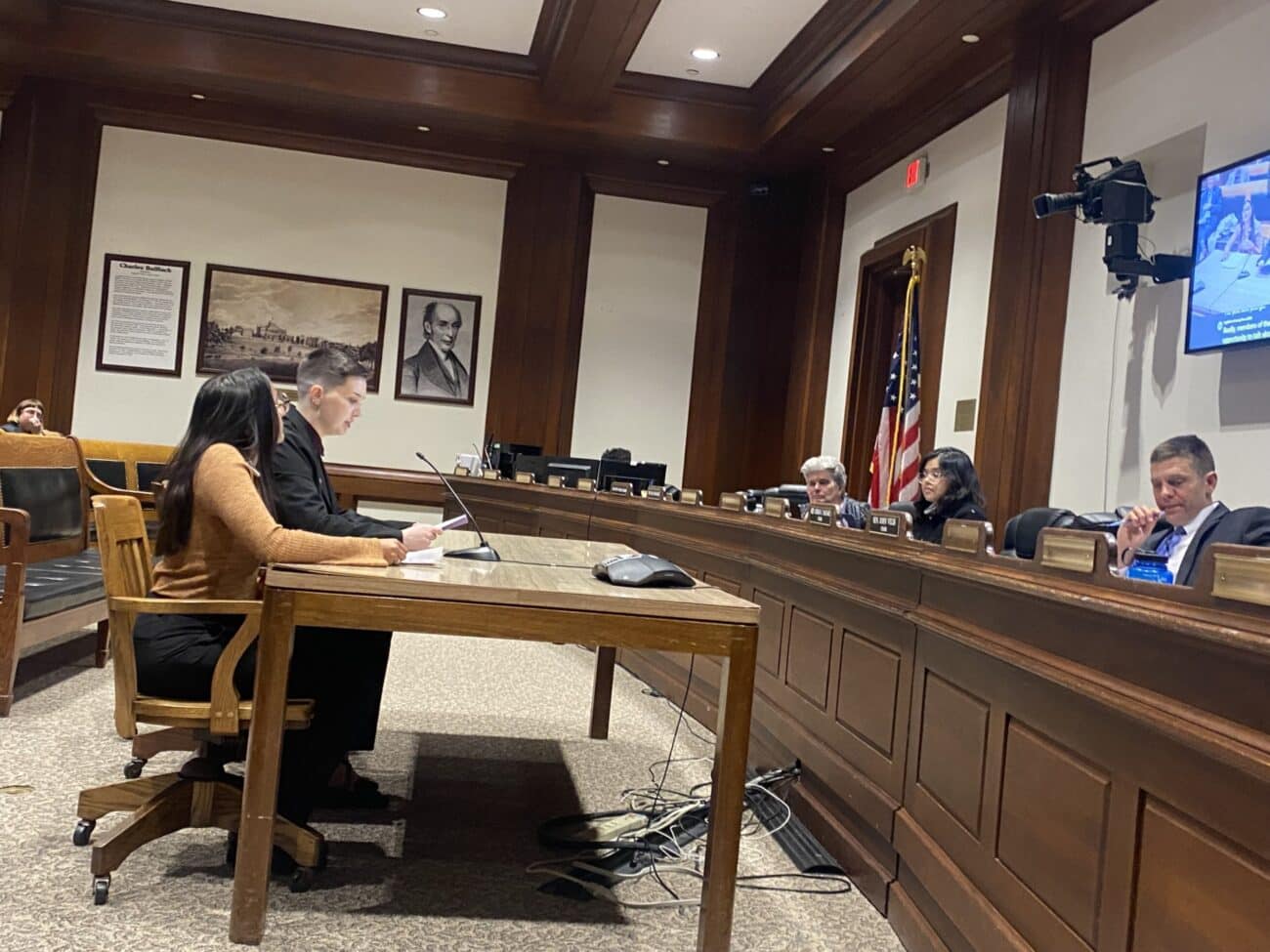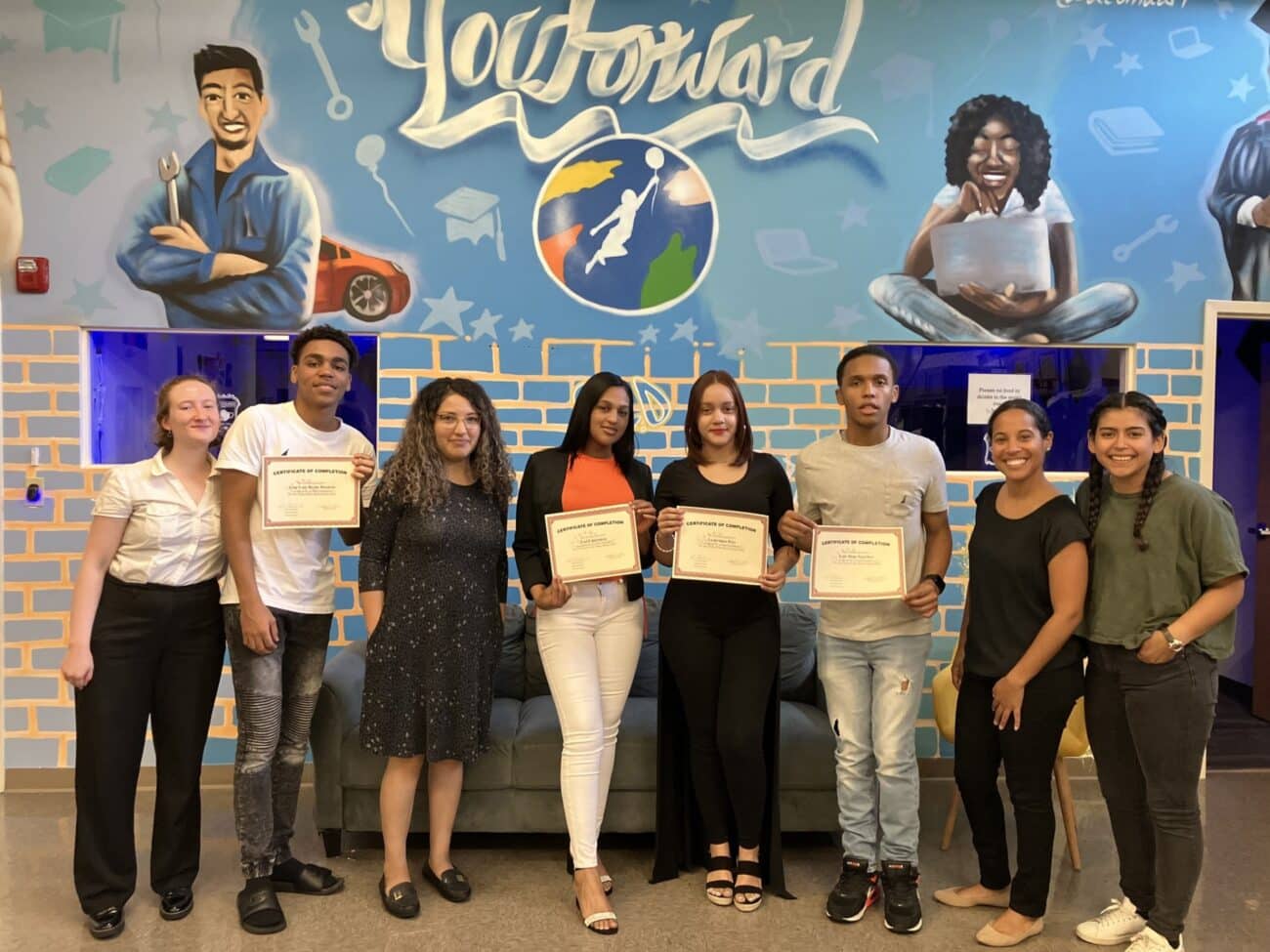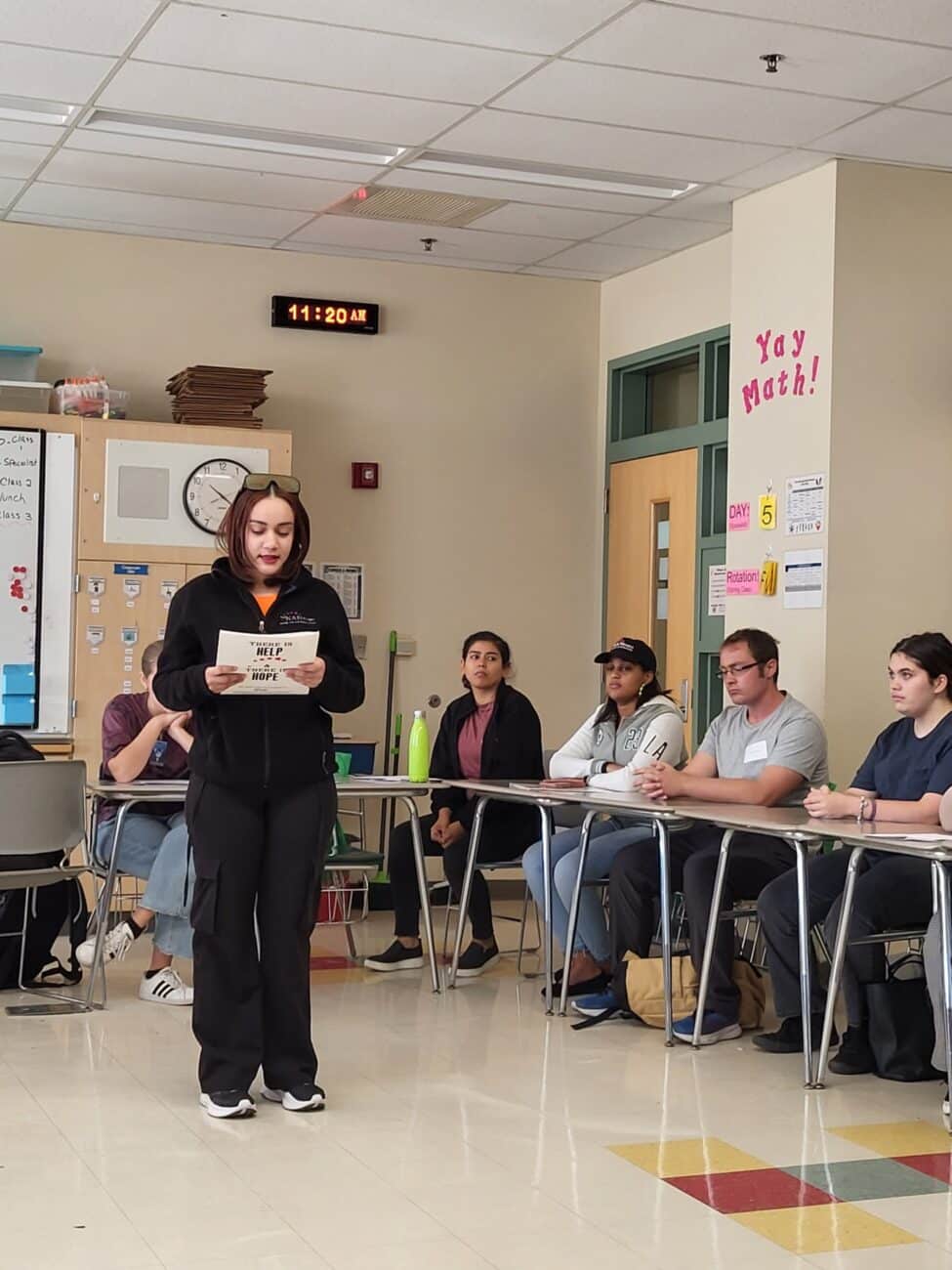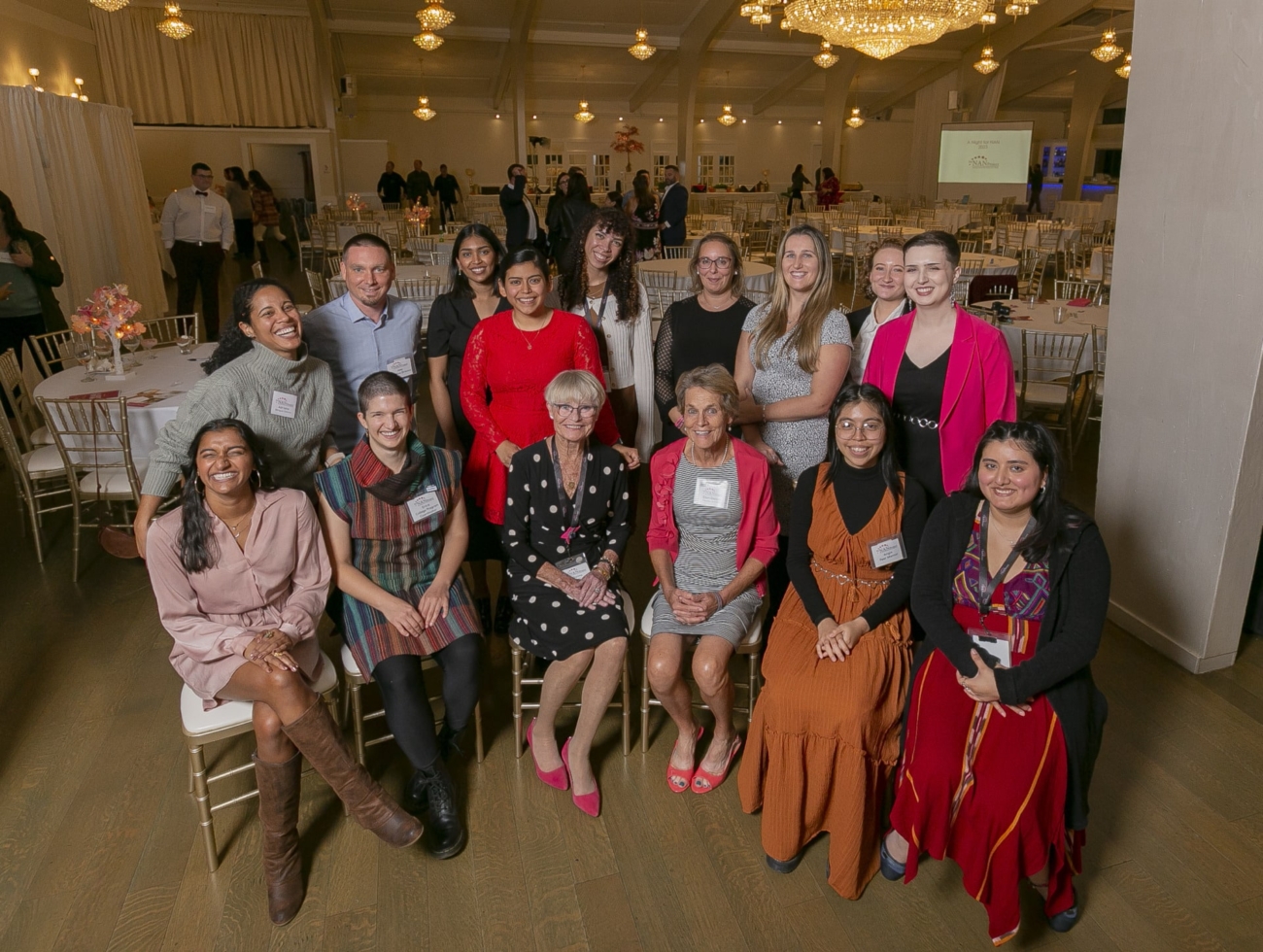Honoring State Senator Cindy Friedman as a NAN Project “Friend for Life”
Managing Mental Health During the Holidays
We all think of the holiday season a little differently. Some of us become joyful, giddy, and excited for all the holiday season brings, that is what is commonly portrayed. However, there is another side to the holidays. There is a side of secret dread, nervousness, anxiety…some of us just experience “the holiday blues”, and for many it is a mix of both extremes.
For students in particular, there are many stressors that come with the holiday season. Whether you’re a middle schooler, high schooler, or college student the holiday season generally means spending more time at home with family due to vacations and breaks. Having that down time at home with family can be stressful for some people and can impact mental health for a number of different reasons. You might miss your friends, maybe there is financial stress, or difficult family members, or it might be your first holiday without a loved one. Whatever the stress, there are resources available to help you get through the holiday, break, vacation.
Remember that social media is a highlight reel, if that, it may even be fake. No one has a life like what is seen on instagram, they may have moments of it, but it’s not sustainable. It is very hard to recognize and remember that when you’re scrolling. Know that it is okay to not be okay. It’s okay to not be happy or joyous, it doesn’t mean there is anything wrong with you, it means the holidays have their own unique parts that can be hard and it is okay for you to feel them. In fact 64% of people who struggle with their mental health felt that their conditions worsened around the holidays. So it is probably more common than anyone thinks it is to have a hard time during this time of year.
For educators:
- Assign holiday work knowing that some students may struggle to complete it and that holiday work can increase things like anxiety
- Be aware that students may “act out” more around the holidays and that they’re often is reason for it
- Be compassionate and empathetic towards students who may be having a harder time
- Notice grade changes, appearance changes, mood changes, and provide a space for students to open up about their holiday struggles
- BASE Education is a great resource for how educators can be helpful around the holiday season Student Mental Health During Holidays – BASE Education
Native American Culture and Mental Health
November is Native American Heritage Month
Native Americans just like any other population of people face unique challenges. Living on a reservation can be hard and some of the challenges people living on reservations deal with include addiction, abuse, lack of quality education, unemployment, poor mental health, oppression, historical trauma, and generational trauma. Some statistics on the impact historical trauma has on this community are:
36% of those surveyed had daily thoughts about the loss of traditional language in their community

Autumn Rose Miskweminanocauq
34% experienced daily thoughts about the loss of culture
49% provided they had disturbing thoughts related to these losses
Some Native Americans have used their challenges with diversity to increase awareness within the mental health community. One individual in particular, Autumn Rose Miskweminanocauq (Raspberry Star Woman) Williams uses her experience to help others. As someone who struggled with body image she became a plus size model and has had the opportunity to give over 100 motivational speeches across the United States. She has also been able to advocate for accurate representation and inclusivity of Indigenous communities. You can learn more about her and her work here: https://nativemaxmagazine.com/autumn-rose-williams-of-humility-heritage/
Some activities going on for Native American Heritage month consist of:
- The Plimoth Plantation teaching about the Wampanoag people, which is located south of Boston
- The MFA has a Cyrus Dallin sculpture of a Ute tribe member
- At Harvard’s Peabody Museum there is a hall dedicated to the North American Indian
- The Mohawk trail is a beautiful scenic walk along what used to be a trade route from New York to Canada for Atlantic Indian tribes
- The Natick History Museum has a section dedicated to Natick tribes

Mohawk Trail

Peabody Essex Museum
Speaking at Beacon Hill

Bullying Prevention
October is Bullying Prevention Month
As the month wraps up, let’s not forget that October is Bullying Prevention Month.
Most people know the general definition of a bully and what that means, but as a quick review “traditional bullying” is defined as aggressive behavior where someone intentionally and repeatedly causes another person physical, emotional, or sexual discomfort. With the modern advancements in technology, there is another type of bullying that promotes a serious threat to children and youth mental health … Most have heard of it, cyberbullying. Cyberbullying is done through cell phones, computers, tablets, and gaming systems. It can also be communicated via social media, text messages, and posts.
Traditional bullying and Cyberbullying are oftentimes hand in hand these days.
Some statistics on cyberbullying are;
1 in every 4 teens has experienced cyberbullying
1 in 6 has been a perpetrator
1 in 5 tweens, or kids ages 9 to 12 have been involved in cyberbullying
Cyberbullying increases stress resulting in anxiety and depression symptoms which in turn can lead to poor academic performance, attendance issues, substance use, self harm and suicidal ideation. Although there is no direct correlation between bullying and suicide, bullying can contribute to the intense feelings of helplessness and hopelessness involved in suicidal behaviors.
It is important to help kids navigate social media. Parents can help curb cyberbullying by monitoring their childs’ technology use and social media accounts, talking about online behavior, and teaching kids how to report cyber bullying either online, with a parent, a teacher, or other trusted adult.
Traditional bullying is not at lower rates than cyberbullying. Signs of traditional bullying include unexplained injuries, damage to physical property, loss of interest in activities, avoidance of attending school.
Some statistics on traditional bullying are:
22% of students get bullied during each school year
Verbal harassment is the most common type, it makes up 79% of bullying at school
43% of transgender students have been harassed on school grounds
While victims are at risk for mental health challenges, let’s not forget that the bullies are too. Bullies are at risk for antisocial and violent behavior, dropping out of school, substance use, criminal behavior, and abuse of a partner or child in adulthood.
Bullying resources and information for this blog post can be found at:
Cyberbullying: What is it and how can you stop it? (apa.org)
Effects of Bullying on Mental Health – Best Day Psychiatry & Counseling
All the Latest Cyberbullying Statistics for 2023 – BroadbandSearch
Night for NAN 2023
All smiles at the Night for NAN reception last night! We’d like to thank everyone who took the time to come celebrate Nan’s legacy with us at @Danversport last night! It was a fantastic night filled with love, admiration, and connection. What a fantastic event to reflect on all the amazing work that the NAN Project does! We couldn’t do it without all of our supporters
Enjoy the first of many N4N posts!!
Domestic Violence Awareness Month
Domestic Violence Awareness Month is October and it can greatly impact a person’s mental health. Not only do the victims of domestic violence experience significant mental health repercussions, but so do those who have witnessed it. Domestic violence can happen to anyone of any age, gender, race, or socioeconomic status.
Domestic violence (DV) is when there is physical violence, sexual violence, or psychological aggression by a partner and when there is a pattern of stalking by a partner or someone close in a relationship. Although those are the official types of domestic violence, really anything within a relationship that causes one to feel unsafe, hurt, or fearful can be classified as DV.
DV is linked to an increased risk of posttraumatic stress disorder, depression, and suicide across those who have experienced it. In addition, those who have witnessed or been exposed to DV are at increased risks for stress, fear, and isolation, which can lead to depression.
Since DV does not discriminate, children and teens who are experiencing or witnessing DV are at a greater risk to struggle with mental health. Some repercussions for children and teens involved somehow with DV are:
- Substance abuse
- Emotional numbing
- Anger
- Sleep Issues
- Antisocial behavior
- Self harm
- Eating disorders
- Withdrawn
- Difficulties at school
- Risk taking behavior
- Running away
Educating youth about bodily autonomy is one of the key ways to help a child or teen that may be experiencing or witnessing DV. Showing a child or teen that you are a trusted adult and someone they can talk to is the next most helpful way you can impact them. Listening and supporting a child or teen with acceptance can help them to feel more able and willing to open up and take action in the situation.
Some resources for a teen or child experiencing or witnessing DV are:
Text: LOVEIS to 22522
Tel: 18663319474
Woburn Student Mental Health Roundtable

Hispanic Heritage Month and Our Spanish Programming

The theme for 2023 is “Latinos: Driving Prosperity, Power, and Progress in America,” highlighting the contributions of Hispanics to the economic, political, and social growth of the United States.
Everyone faces adversity and mental health challenges. Within the Hispanic community 22% of people report mental health challenges. That is a lot of people especially considering mental health challenges are often viewed as a weakness within the community often leading to people less likely to reach out for support. Those who do reach out to support face barriers such as language barriers, therapists who are not culturally competent, and insurance issues.

Our Newest Spanish-Speaking Peer Mentors at their Graduation
The NAN Project has recently begun implementing hispanic voices into our mental health programming to combat this stigma. This year we had five Spanish-speaking and two bilingual peer mentors train and graduate to work with The NAN Project and tell their inspiring stories of mental health struggles! We were thrilled to welcome these Spanish speaking peer mentors to our team as they help us to better expand our reach into diverse communities. In October alone, we already have five foreign language presentations lined up! For example, this week at Keverian Middle School in Everett, MA we presented to a class and shared Comeback stories in both Spanish and Portuguese.

Spanish Language Presentation in Everett, MA
Mental health can be especially stigmatized in hispanic communities, therefore it is extremely important to us that our programming is multiculturally accessible. During our spanish speaking presentations, we have noticed that students connect much more with the topic of mental health when the stories and struggles are told in their native language. We look forward to continuing to build upon our spanish language programming and are excited to offer hispanic youth the chance to explore their feelings and emotions surrounding mental health.
Some Hispanic based mental health supports are:
Hispanic Clinical Services in Lawrence MA
Cass Esperanza in Boston MA
The American Society of Hispanic Psychiatry
Therapy for LatinX
Some of the events coming up locally to celebrate Hispanic Heritage Month are:
Friday Oct. 6, 2023
6-10 pm
Annual Hispanic Heritage Month Celebration Fundraiser
Fri, Oct 6, 7:30 – 8:30 PM
40 Academy Hill Rd, Brighton, MA
For children ages 7-12, they will learn the basics of poetry writing and will share their poems with the group; led by Boston Youth Poet Laureate Alondra Bobadilla
Thu, Oct 26, 9:30 AM – 4:30 PM
Boston Public Library – Central Library
700 Boylston St, Boston, MA
For the month of October, Special Collections will be highlighting items in our collections from Hispanic creators for National Hispanic Heritage Month. Celebrate National Hispanic Heritage Month
Fri, Oct 13, 8 – 10 AM
Union Station Grand Hall
2 Washington Sq, Worcester, MA
Presented by CENTRO Inc., The Institute of Latino Art & Culture invites you to their 4th Annual Central Mass Hispanic Heritage Breakfast
Finding Help

The next step is finding “your people” which is vital for being able to get the help you want or need. That looks different for different people. Sometimes it’s a peer group, family, teachers, mental health professionals, or doctors. The main thing that is important is finding them. A great place to start is in your family, doctors office, and school. Teachers and school counselors are amazing resources to utilize and can open up a ton of other possibilities. A school counselor or primary care doctor can get you linked to resources you might need out of school hours. They can put in referrals to therapists, peer mentors, support groups, and they can help you have discussions with your family on accessing these things.
A lot of students really worry about how they are going to financially get the help they need. If that is a problem the professionals already in your life (i.e. school counselors and doctors) would hopefully be able to point you in the direction of some free services or sliding scale services. They are out there, they do exist, it’s finding them.
A free resource that can help locate the correct services needed in Massachusetts and in over 200 languages is the Mass Help Line which you can call or text at 833-773-2445, open 24/7. Accessing resources can be a daunting challenge especially when you’re already overwhelmed. However, finding “your people” is a great first step in taking care of you.








